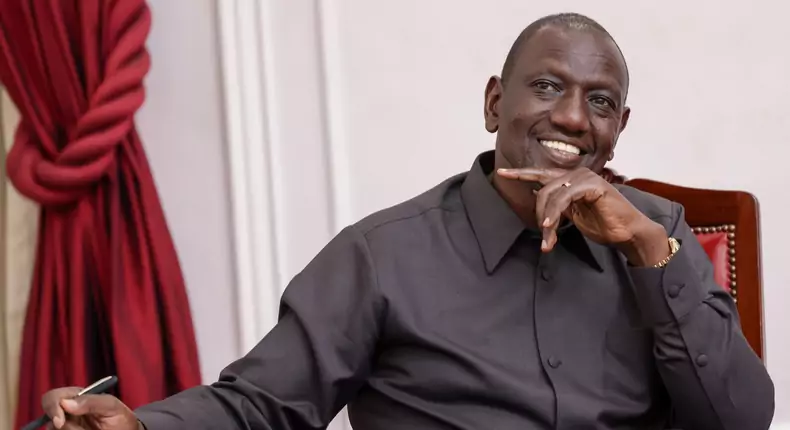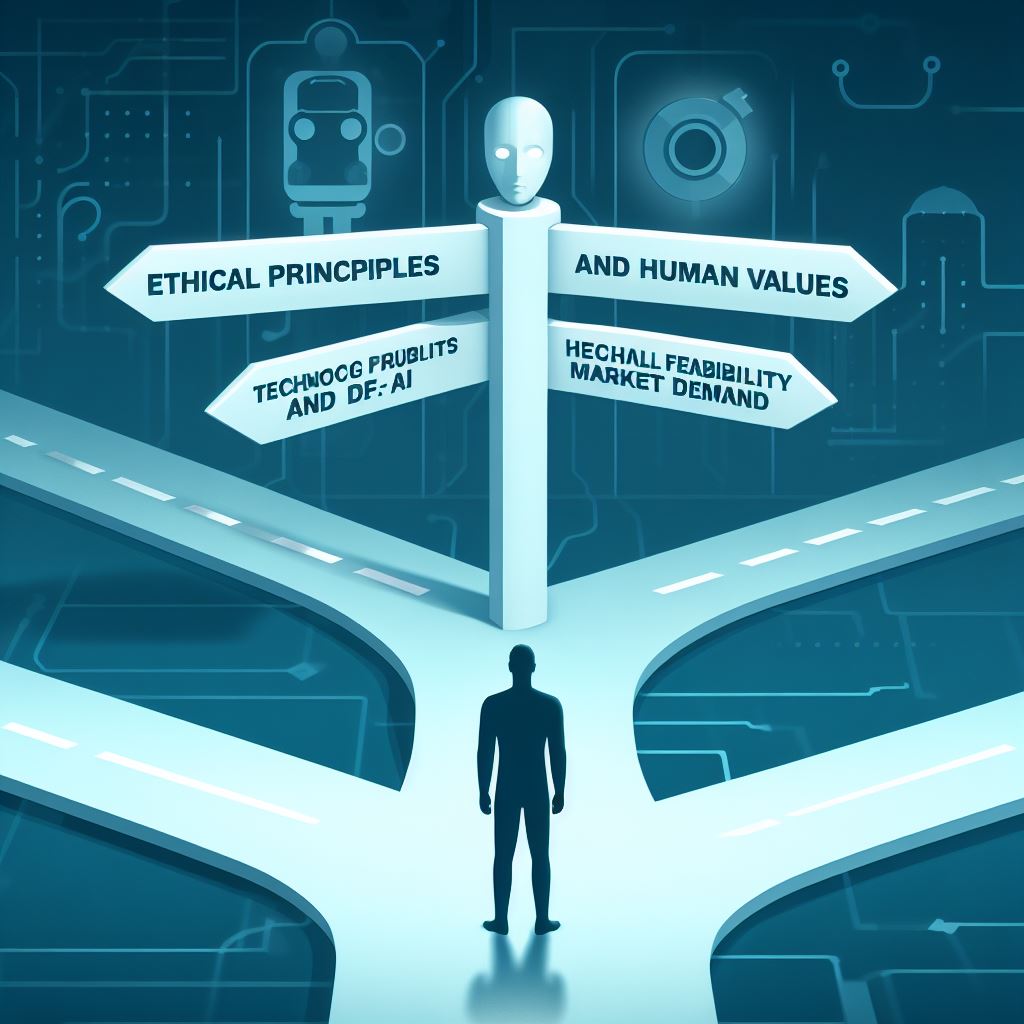Highlights
Ruto’s Cabinet Reshuffle: A Strategic Move for Efficiency

In a significant political development, President William Ruto has announced a major reshuffle in his cabinet. The reshuffle, which has seen several key figures being moved around, is seen as a strategic move by President Ruto to streamline his administration’s operations.
The portfolio mandate of the Office of the Prime Cabinet Secretary Musalia Mudavadi has been expanded to include the Ministry of Foreign and Diaspora Affairs. The Ministry of Public Service, Gender and Affirmative Action has been reconstituted and renamed as the Ministry of Public Service, Performance and Delivery Management, now under former Trade CS Moses Kuria.
Rebecca Miano has been named the new CS for Trade and Investments. The Ministry of Tourism, Wildlife and Heritage has been reconstituted and renamed as the Ministry of Tourism and Wildlife, now under former Foreign Affairs CS Alfred Mutua.
Former Tourism CS Peninah Malonza has been transferred to the Ministry of East African Community, The ASALS & Regional Development. The Ministry of Youth Affairs, the Arts and Sports has been reconstituted and renamed as the Ministry of Youth Affairs and Sports.
A new ministerial portfolio has been established as The Ministry of Gender, Culture, the Arts and Heritage, now under former Public Service CS Aisha Jumwa. The State Department for Performance and Delivery Management has been transferred to the Ministry of Public Service, Performance and Delivery Management.
The State Department for Culture and Heritage has been renamed as the State Department for Culture, the Arts and Heritage and vested in the Ministry of Gender, Culture, the Arts and Heritage. The State Department for Gender and Affirmative Action has been transferred to the Ministry of Gender, Culture, the Arts and Heritage.
This reshuffle is expected to bring about a more efficient government structure that can better serve the Kenyan people. As President Ruto embarks on this new phase of his administration, all eyes will be on him to see how these changes play out in practice.
Featured
Rising Tensions: Israel and Hamas on the Brink

In a rapidly escalating conflict, Israel has ordered a complete siege of Gaza, a military operation that involves surrounding a town or building and cutting off essential supplies. The aim is to compel those inside to surrender. As of now, water supplies from Israel to Gaza are being cut off.
Israel’s Prime Minister has issued a stern warning to Palestinians, vowing to turn parts of Gaza into rubble. On the ground, journalist Trey Yingst reports that Israel is moving troops to the border in preparation for the possibility of a ground invasion into Gaza.
In a tragic turn of events, more than 260 bodies have been recovered from the Israeli Nova Festival, which was unfortunately close to the area where Hamas militants entered the country. Eyewitnesses report that the festival was approached by men dressed in soldiers’ uniforms who opened fire indiscriminately.
The United States has responded by moving an aircraft carrier, ships, and jets to the eastern Mediterranean. They have also offered to provide Israel with additional equipment and ammunition.
Iran, currently accused of aiding Hamas in executing the attack, has issued a warning. If they are attacked, they will launch strikes on Israel from Lebanon, Yemen, and Iraq.
Meanwhile, cities across the U.S. and other countries have seen both pro-Israel and pro-Palestine individuals taking to the streets in protest. The death toll continues to rise on both sides, with over 700 reported in Israel and more than 500 in Gaza.
This is an evolving situation with far-reaching implications. As more information becomes available, we will continue to provide updates.

Highlights
The Ethical Dilemma in Software Development and AI

In the fast-paced world of technology, the ethical implications of software development and artificial intelligence (AI) are becoming increasingly important. As we continue to integrate these technologies into our daily lives, it’s crucial that we consider the moral and ethical responsibilities that come with them.
The Code of Conduct in Software Development
Over the years, various organizations and individuals have attempted to codify developer ethics into oaths, pledges, and codes of conduct. These include the International Standard for Professional Software Development and Ethical Responsibility by the IEEE-CS/ACM Joint Task Force on Software Engineering Ethics and Professional Practices, The Ten Commandments of Computer Ethics by the Computer Ethics Institute, and The Programmer’s Oath by “Uncle Bob” Martin, among others.
These codes of conduct often emphasize honesty, integrity, and fairness. However, since most software developers do not belong to any official order, guild, association, or society, no single ethical standard has been widely adopted.
Ethical issues in software development include data privacy, accessibility, addictive design, algorithmic bias, and software security. Protecting users’ personal data from unauthorized access and misuse is a key concern. Ensuring that software is inclusive and accessible to diverse and disadvantaged groups of users is another important aspect. Avoiding design features that exploit users’ psychological vulnerabilities and cause addiction is also crucial. Preventing software from producing unfair or discriminatory outcomes based on factors such as race, gender, or age is a significant challenge. Securing software from cyberattacks and safeguarding users’ personally identifiable information (PII) is a fundamental responsibility.
The Ethical Implications of AI and Machine Learning
As AI and machine learning take on bigger decision-making roles, ethical concerns are mounting. Companies are increasingly infusing AI and machine learning into their products to better serve their customers. However, part of the appeal of algorithmic decision-making is that it seems to offer an objective way of overcoming human subjectivity, bias, and prejudice.
Ethical issues in AI and machine learning include transparency, privacy, bias, harm, data responsibility, fairness, explainability, robustness, environmental sustainability, inclusion, moral agency, value alignment, accountability, trust, and technology misuse. Bias can result from human interaction with the model or the information the system learns from. Biased algorithms can do serious damage to people in various domains such as home loans, parole job interviews, and online platforms. To be ethical in machine learning it is essential to evaluate monitor and limit potential learned biases as much as possible.
It’s important for developers and companies to consider these ethical implications as they continue to innovate in these fields. By adhering to a strong code of ethics we can ensure that these powerful technologies are used responsibly and for the benefit of all.
In conclusion as we continue to push the boundaries of technology it’s crucial that we also consider the ethical implications. Whether it’s in software development or AI a strong code of ethics can guide us towards responsible innovation.
Featured
“Unstoppable Dr. Eve:Kabondo Kasipul’s Second Time Triumphs”

“Unstoppable Eve: Kabondo Kasipul’s Second Term Triumphs”
Eve Obara MP for Kabondo Kasipul has indeed continued to make significant strides in her second term in office, effectively silencing her opposition. Throughout her tenure, she has shown remarkable leadership skills and a genuine commitment to serving her constituents.
One of the key areas where Eve Obara has excelled is in infrastructure development. Under her watch, significant road networks have been constructed, connecting previously isolated areas and improving accessibility for the local population. This has not only enhanced transportation but also promoted economic growth within the constituency.
In addition to infrastructure, Obara has also prioritized education and healthcare in Kabondo Kasipul. She has actively lobbied for the establishment of new schools and healthcare facilities, ensuring that her constituents have access to quality education and healthcare services. This has resulted in improved literacy rates and better health outcomes for the local population.
Furthermore, Obara has been a strong advocate for women’s empowerment and gender equality. She has initiated programs that promote entrepreneurship and skills development among women, providing them with the necessary tools to become financially independent. Additionally, she has been vocal in addressing issues such as gender-based violence and discrimination, working towards creating a more inclusive and equal society.
Despite facing opposition, Obara has been able to silence her critics through her effective communication and transparency. She regularly engages with her constituents, listening to their concerns and providing timely feedback. This has created a strong sense of trust and confidence in her leadership, making it difficult for the opposition to challenge her.
Overall, Eve Obara MP for Kabondo Kasipul has proven herself to be a dedicated and effective leader. Her continued efforts in infrastructure development, education, healthcare, and women empowerment have significantly improved the lives of her constituents. By silencing her opposition through her achievements and open communication, she has solidified her position as a respected and influential figure in the community.
-

 Football1 year ago
Football1 year agoArteta on Havertz criticism:
-

 Sports11 months ago
Sports11 months agoArsenal’s Five-Star Performance
-

 Featured12 months ago
Featured12 months agoFootball powerhouse neglected in AFCON preparation.
-

 Highlights12 months ago
Highlights12 months agoIn the shadow Of Conflict,President Ruto Visits Nyanza.
-

 Culture12 months ago
Culture12 months agoRigathi Gachagua’s Call for Population Growth: A Strategy for Economic Development
-

 Football11 months ago
Football11 months agoThe Showcase Africa: A Platform for Young Footballers to Realize Their Dreams
-

 Featured12 months ago
Featured12 months ago“Lighting the Path to Progress: The Impact of Hon. Charles Were on Kasipul Constituency”
-

 Politics12 months ago
Politics12 months agoThe Mount Kenya Region: United Against Collective Challenges





